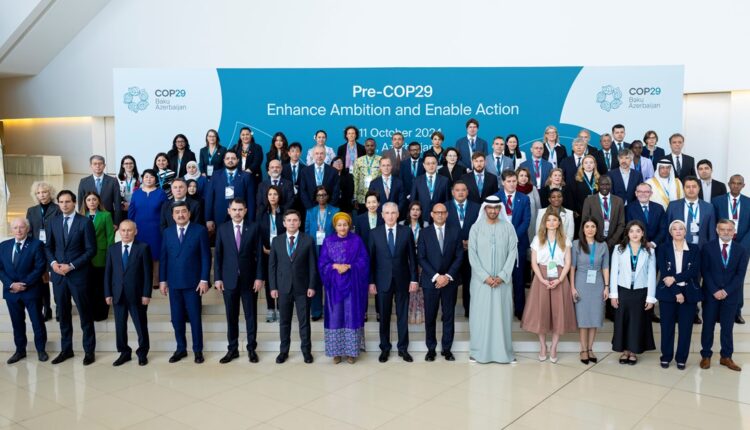Kathmandu. At the 29th Summit (COP 29) of the Parties to the United Nations Framework Convention on Climate Change (UNFCCC), which ended this week in Baku, Azerbaijan, the decision on climate finance announced in the new Collective Quantitative Goals (NCQG) is the conclusion of the Nepali representative present at the COP. Even though the climate crisis is happening fast, it has been criticized that the decision regarding NCQG has been delayed in the climate finance target implementation.
The group of Least Developed Countries (LDCs) including Nepal were insisting on the need to increase the size of climate finance, easy access to it, compensation for countries facing climate crisis in time, etc., etc. When it comes to the final decision of COP, the representatives present at COP are disappointed, saying that the process for implementing the NCQG goals is not clear and that the decision was made in a protracted manner.
Dr. Sindhu Prasad Dhungana, Head of the Climate Management Division under the Ministry of Forest and Environment, commented that COP’s achievements were not as expected when looking at the decision related to NCQG. “We did not get the expected success in COP, it is said that the climate finance support should be 1.3 trillion, but it is said that only 300 billion will be supported. It was not fair as we thought”, he said.
Rajupandit Chhetri, an expert on climate finance, commented that the decision to extend the deadline for providing support to rich and developed countries is always slow. “Least developed countries like Nepal continuously lobbied in COP demanding to increase the size of climate finance needed to solve the climate crisis in the world. “In COP 29, it was only agreed to provide 300 billion US dollars by 2035. That agreement is not every year. The target of reaching 300 billion US dollars by 2035 is very low.”
Chhetri commented that rich and developed countries have lagged behind in the implementation of ambitious goals of climate finance. “It is said that 300 billion US dollars will also come from private and various sources. It is not clear how much the developed countries will contribute. We had said that climate finance grants should be ensured on the issue of adaptation and loss and damage,” he said, “But this too was only written in language. It was not ensured. Our issues were only documented. It could not be implemented.”
Another climatologist, Dr Popular Jantal Bhusal, commented that the decision on the agenda including NCQG was not successful. “It seems that the finance required for the implementation of the Nationally Determined Contribution (NDC) prepared by Nepal and the adaptation plan will not be available on time. Which creates a challenge in the implementation of these plans,” he said. “If the NDC can be implemented, the global temperature increase can be kept under control by reducing carbon emissions.”
Bhusal said that the failure to increase the size of climate finance as expected in COP is a neglect of the agenda of least developed countries, including Nepal, in implementing it.
The group of Least Developed Countries (LDCs) had also opposed the NCQG since the draft. On the same day that the coup was completed, LDC expressed its displeasure saying that the coup was not successful and was a big threat to the sensitive countries.
What is the NCQG?
The New Collective Quantitative Goal (NCQG) is a quantitatively defined new target for financial assistance from developed countries to developing countries under the United Nations Framework Convention on Climate Change (UNFCCC). This target has been set to find new sustainable and effective ways to ensure the management, distribution and impact of climate finance for the period after 2025.
NCQG was launched with the aim of improving the financial structure after 2025 as the developed countries could not meet the goal of raising one hundred billion US dollars per year by 2020. It is expected to assist in adaptation, mitigation, climate damage and loss mitigation. Its important goal is to ensure the flow of financial resources according to the needs of countries at risk of climate change.
Climatologist Manjit Dhakal said that NCQG aims to set goals by consensus between developed and developing countries, and to make the field of climate finance more sustainable and inclusive in order to ensure the implementation of these goals. He said that its successful implementation will play a significant role in mitigating the impact of climate change and reducing risks.
Dhakal further clarified, “The essence of NCQC is to meet the needs of developing and less developed countries to face the effects of climate change.The goal is to ensure sustainable financial resources to ensure their sustainable development.”


Comments are closed.